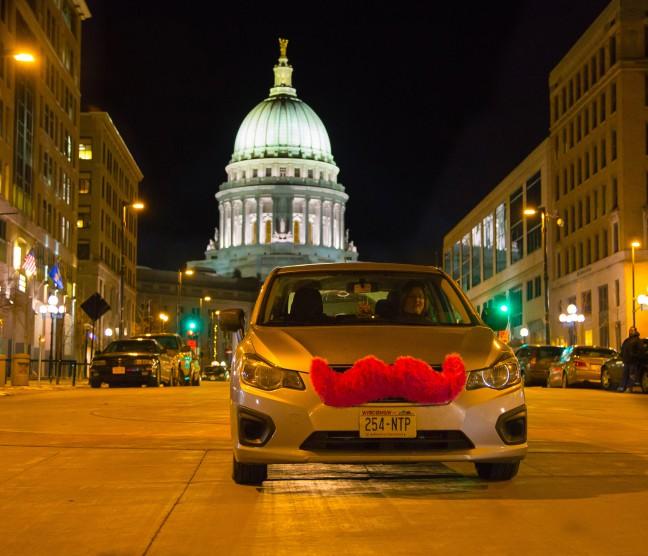Nice cars, convenient technology and seamless service are the calling cards of the ridesharing services Uber and Lyft. Across the U.S. and overseas, Uber and Lyft have entered markets and immediately ruffled the feathers of traditional transit companies who have seen the new companies take some of their market-share. However, despite the commotion, Uber and Lyft continue to expand, falling into consumers’ open arms. Madison, like many cities, attempted to curtail their operations, but even the threat of police crackdowns has done little to curtail demand for the services.
Now, the state of Wisconsin will likely preempt local municipalities from regulating ridesharing companies on their own in favor of comprehensive statewide standards. This proposal, which passed the Wisconsin Senate and Assembly, would require licensing from the state, insurance, background checks and would ban discrimination based on religion, sex, race or disability. While a large burr in the sides of cities like Madison, who have large and powerful taxi interests, this proposal will streamline innovation in personal transit options.
Senate passes rideshare regulation bill, vote to remove waiting period for handguns
Overall, I support the bill. I don’t have a problem with surge pricing — pricing differently depending on demand — because everything from movie theaters to subways already does that. I don’t have a problem with cities being unable to self-regulate because outside of Madison and Milwaukee, few cities would have the capacity to do it anyway. However, I do wish the bill provided stronger enforcement mechanisms to protect against discrimination.
When asking someone why they don’t like Uber or Lyft, the answer is often based on concerns over equity, or otherwise “playing by the rules.” In Madison, the existing taxi companies follow strict regulations on hiring practices, insurance requirements and discrimination policies. They also are bound by Madison’s 24 hour rule which requires taxi companies to offer service around the clock with pricing that doesn’t vary depending on the time of day.
Critics of Uber and Lyft claim allowing ridesharing companies to flout these existing regulations would be unfair because they offer substantially similar services and should therefore follow the same rules. While I agree the services are similar — to the consumer, it’s a car that gets you from Point A to Point B — by allowing ridesharing companies to operate separately and encouraging communities to reevaluate existing taxi cab models, consumers and residents will benefit.
As I mentioned before, my biggest concern in the rise of companies such as Uber and Lyft is that lower income individuals and perceived “bad” parts of town will get left behind. Uber and Lyft operate on credit cards only, facilitating a seamless and quick experience, but one that caters only to individuals with these cards. Madison certainly has many residents and families that do not utilize plastic cards on a daily basis and the death of traditional taxi services would be devastating.
Similarly, critics claim Uber and Lyft drivers won’t pick up riders in “bad” neighborhoods and instead cherry-pick from more affluent areas. While the statewide language prohibits discrimination on a number of factors, neighborhoods aren’t one of them and it is likely some areas of Madison will see reduced service from this change.
These concerns shouldn’t just be waved away — they are worth vigorous debate and policy solutions. However, the solution is not to bind the hands of companies that are trying to reduce costs and expand the traditional model to new areas. The solution is to allow existing companies to innovate and compete. Madison can loosen its grip on the taxi cartel and still provide services.
I wrote in September about former mayoral candidate Ald. Scott Resnick, District 8, and his plan to regulate ridesharing companies and change Madison’s taxi service, which I believe still contains good reforms Madison needs to enact. Eliminating the 24 hour rule and replacing it with a more flexible framework would be a welcome change to reduce costs.
Uber and Lyft are easily characterized as the personal shuttles of affluent, sprinting women in heels and men in collared shirts from hot spot to hot spot, but their core model has touched on a trend that will not be reversed. Madison should take this opportunity to look at what we currently have and how we can help modernize a stagnant industry to face the world as it exists now and how it will exist tomorrow.
Adam Johnson ([email protected]) is a Master’s candidate at the La Follette School of Public Affairs.















